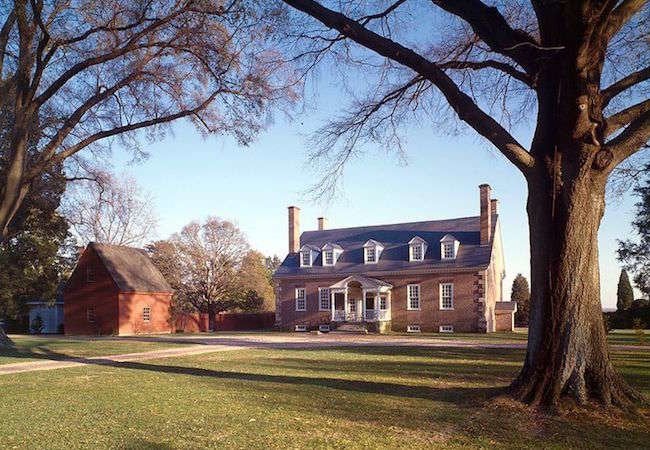We may earn revenue from the products available on this page and participate in affiliate programs. Learn More ›
Longwood, Natchez, MS (1859)

flickr.com via faungg
Known by locals as Nutt’s Folly, this antebellum mansion built for Mississippi natives Haller and Julie Nutt represents a stunning architectural and visual achievement in the Old South. Now a museum, the oldest octagonal house in America boasts an eight-sided floor plan and a Byzantine-style dome that commanded as much attention and admiration at the time of its construction in 1859 as it does in the present day.
Related: 18 American Towns Every Old-House Lover Needs to See
Bishop’s Palace, Galveston, TX (late 1800s)
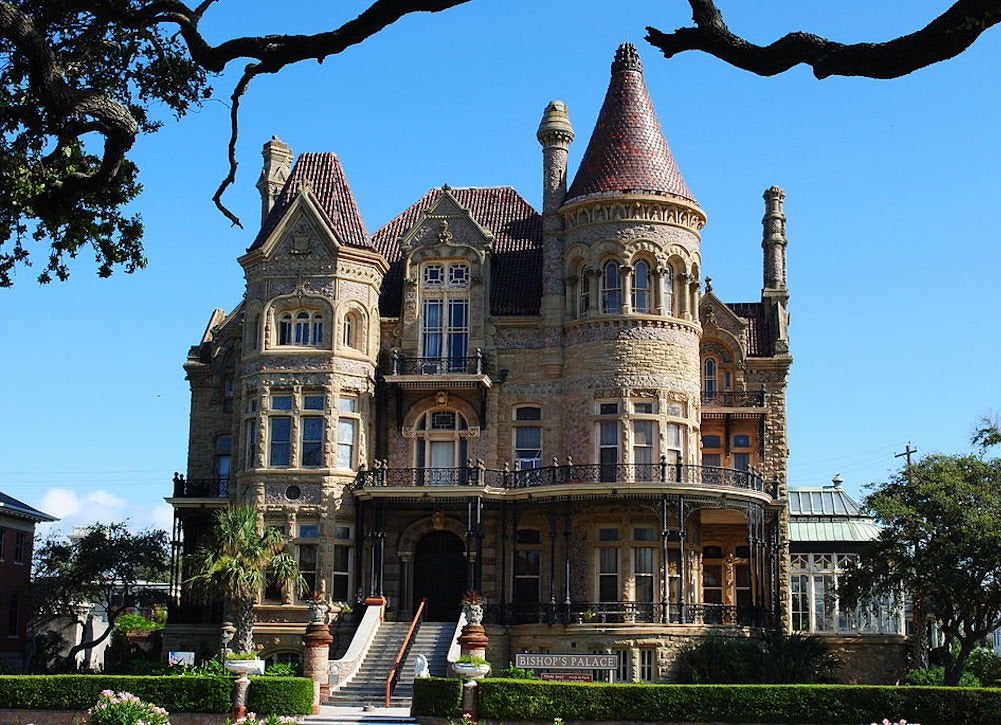
By the ornate, Victorian-style stone exterior, you might never guess that this mansion resides on the gulf coast of the Lone Star State. The 19,082-square-feet, four-floor home, built between 1887 and 1903, once housed Bishop Christopher Byrne before the diocese offices were closed and the edifice was immortalized as a historic home in Galveston’s East End Historic District.
Related: 16 Iconic American Homes Torn Down Before Their Time
Dunleith, Natchez, MS (1856)
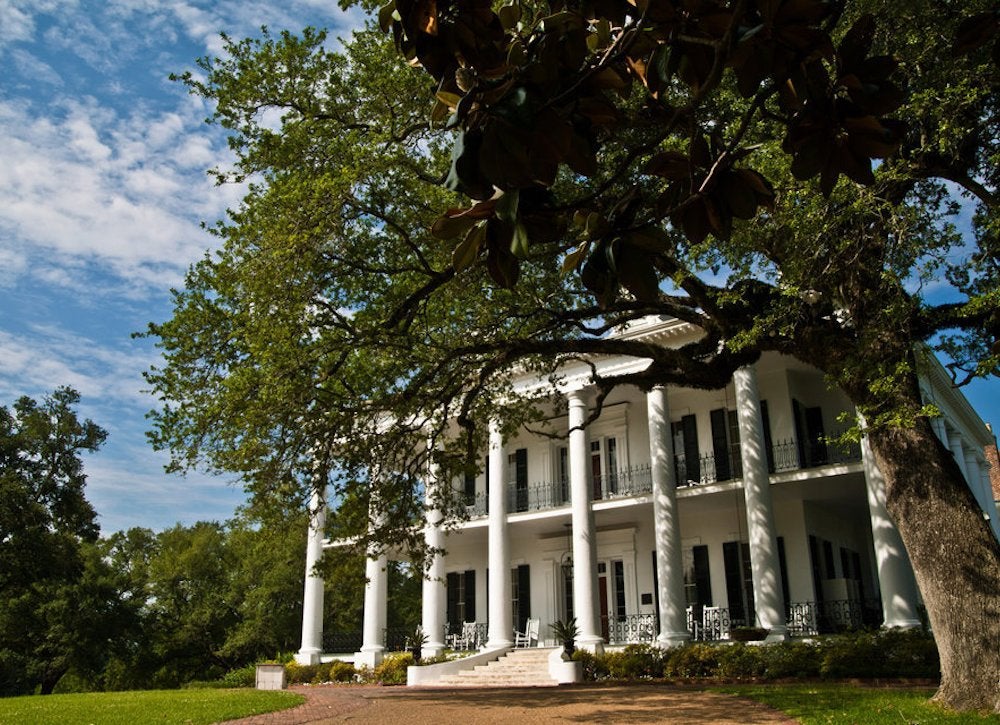
Despite the Scottish name that Alfred Davis bestowed on the home, Dunleith in historic Natchez is a true southerner. The antebellum mansion and plantation, rebuilt in 1856 after the original home burned down, boasts a carriage house, barn, poultry house and greenhouse, all situated on a sprawling 40-acre estate that is open to the public for guided history tours.
The Molly Brown House, Denver, CO (1880s)
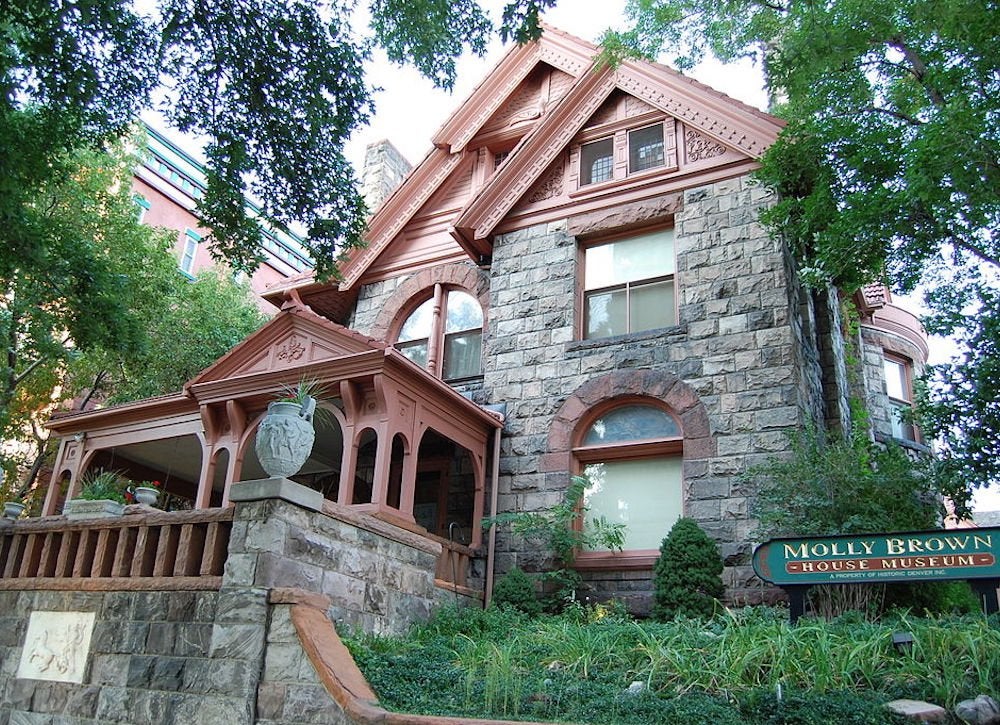
Formerly the home of activist Molly Brown, who survived the sinking of the Titanic, this Denver dwelling has likewise survived its 135-year-old history and lives to tell the tale. Dating to the 1880s, Brown’s residence has since been converted into a museum filled with unmissable exhibits that illustrate Brown’s life in Victorian-era Denver.
Related: 9 Victorian Homes We Love
Gunston Hall, Mason Neck, VA (1759)
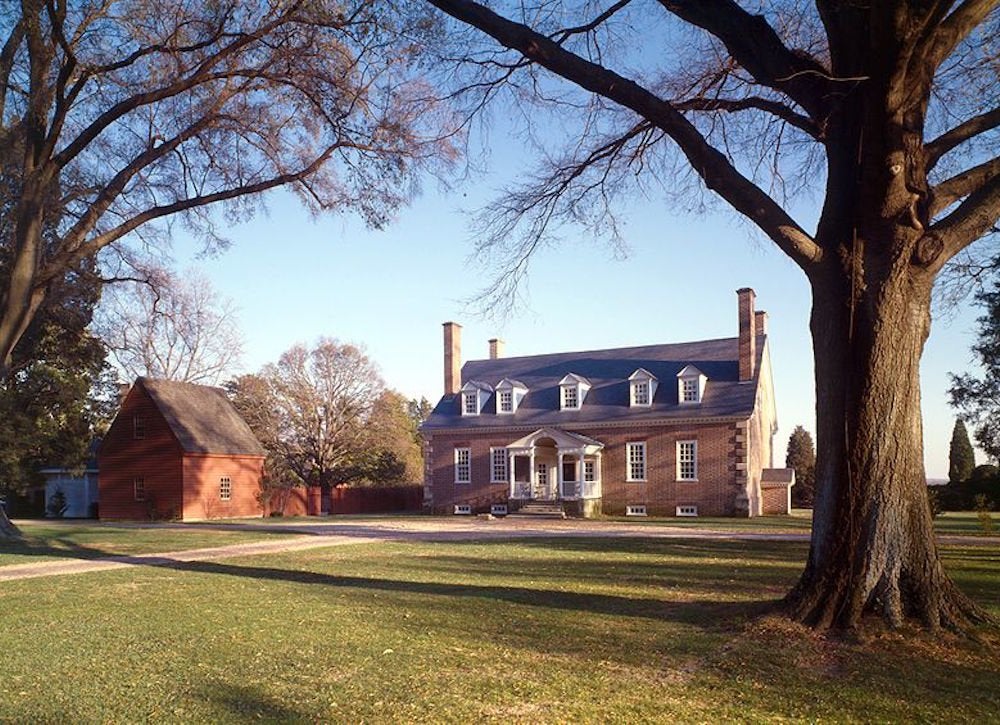
What would the founding fathers think of this still-standing historic mansion? George Mason, one of the all-important delegates to the U.S. Constitutional Convention, admired Gunston Hall enough to make it his family residence. Built in 1759, the Georgian-style home boasts private and public rooms, an ornate parlor, and pocket-shuttered windows that afford stunning views of the Potomac River.
Related: 8 Tiny Homes You Can Buy for the Price of a Luxury Car
The Halsey House, Trumansburg, NY (1829)
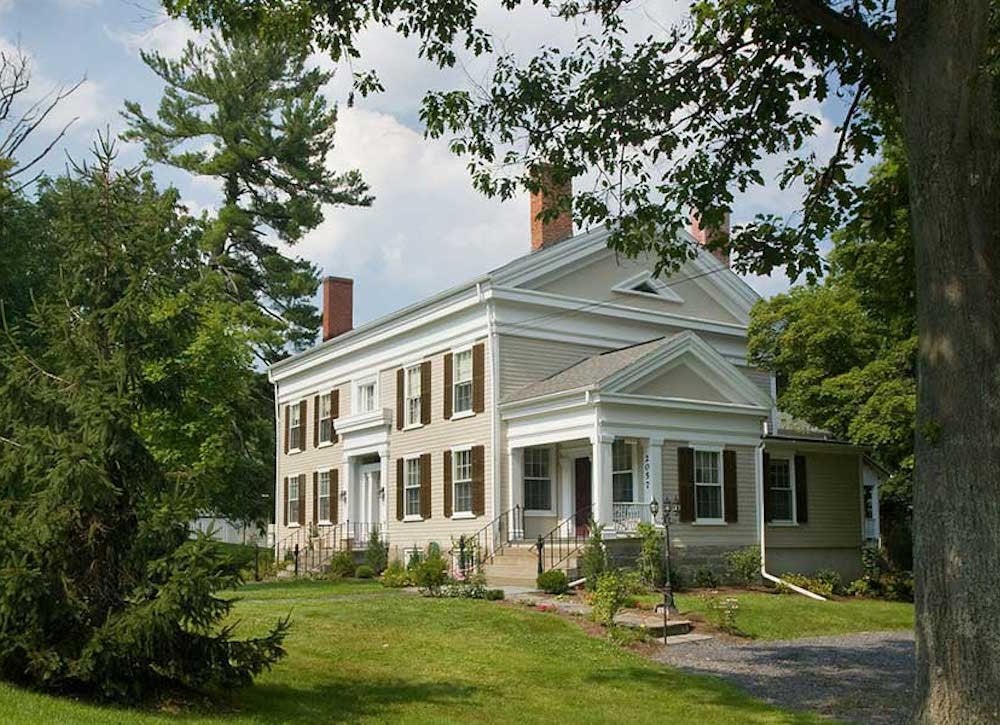
Situated along the winding trails and gorgeous gorges of the Finger Lakes region, this historic home has earned itself a place on the National Register of Historic Places. Built in 1829, the Halsey House is distinguished by its beautifully preserved original flame-grained doors, wide-planked floors
, moldings, and windows. These historic features, plus a scrumptious menu, make this home a delightful modern-day bed and breakfast.
Related: The 20 Best (and Most Unusual) B&Bs in America
Mack B. Nelson, Kansas City, MO (1914)
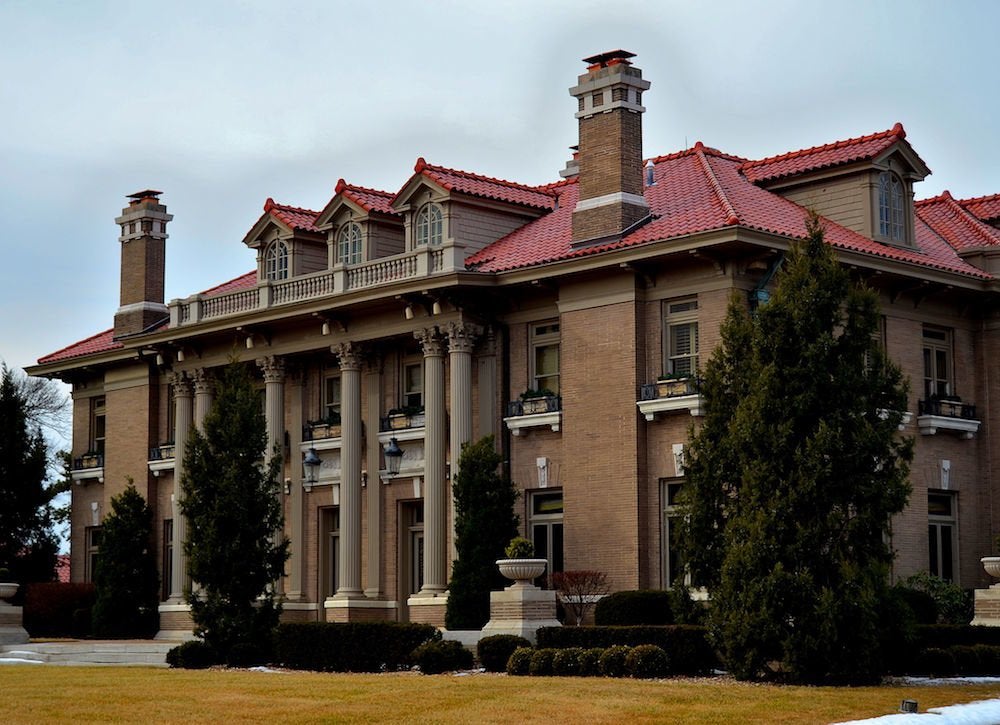
“Go big, then go home” seems to be the philosophy behind this palatial property in Kansas City, built in 1914 for lumber magnate Mack B. Nelson. The sixteen bedrooms, eight baths, pool house, and basketball court of the 14,661-square-foot abode are all built around a central atrium. Lit by a movable skylight, the grand home is sure to leave visitors starstruck for days.
Related: 16 Iconic American Homes Torn Down Before Their Time
Mark Twain House, Hartford, CT (1874)
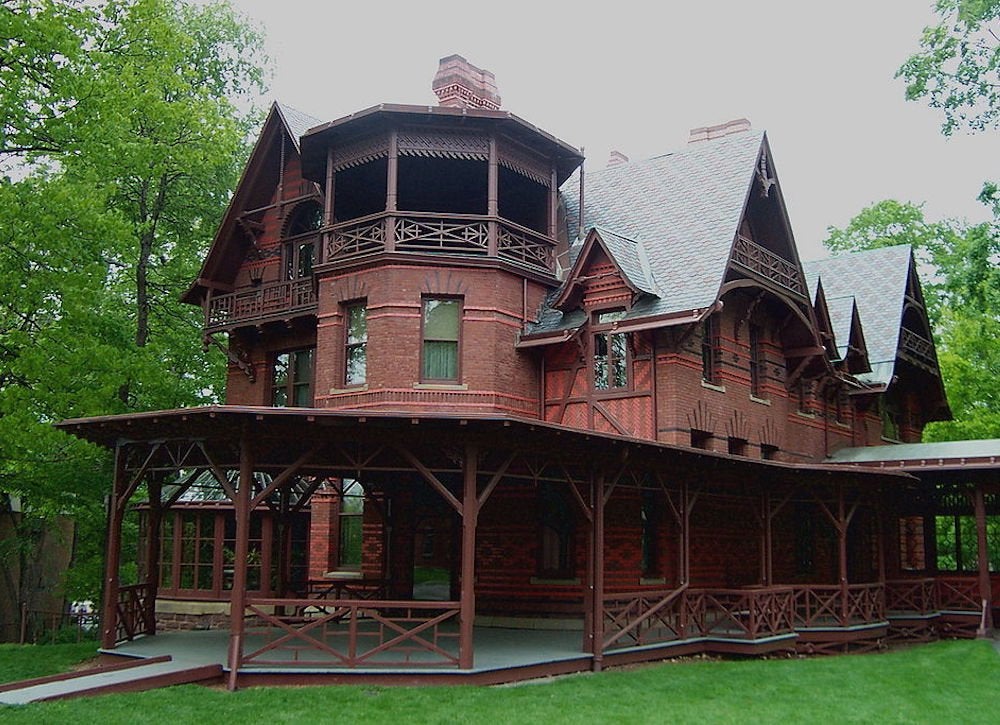
Built in 1874, this Hartford home has its distinguished former residents to thank for its storied past. Literary luminary Samuel Clemens, better known as Mark Twain, once occupied the Gothic-style house along with his family. Today, bookworms and architecture buffs can admire the East Indian motifs in the drawing room, the elegantly embossed dining room, and—of course!—the library.
Related: 7 Fictional Towns You Can Visit in Real Life
Grouseland, Vincennes, IN (1804)
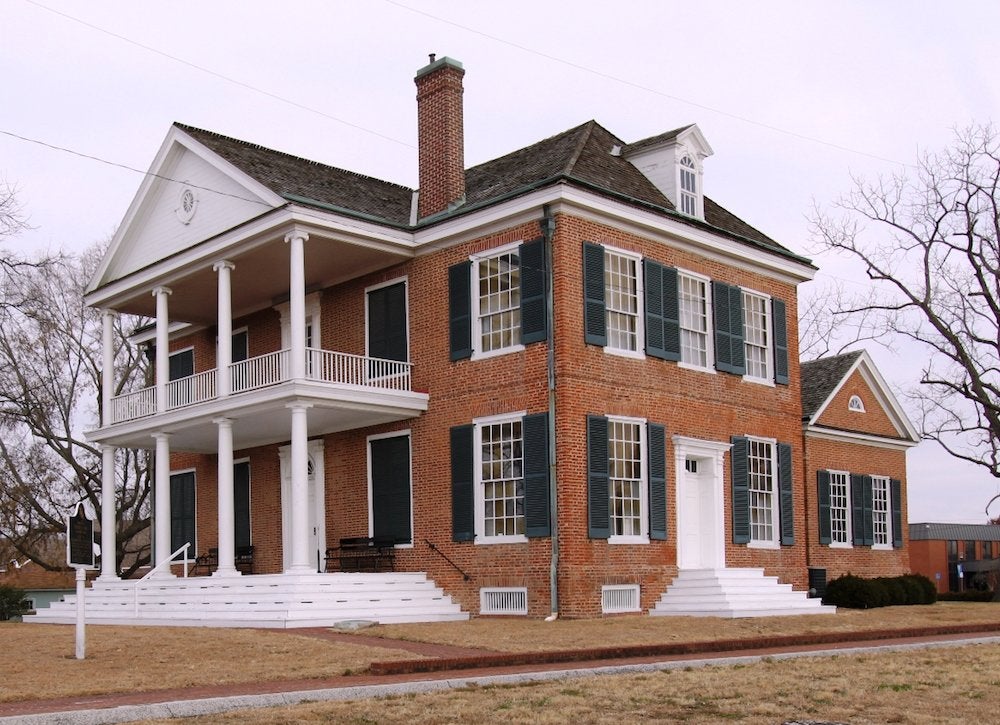
flickr.com via OZinOH
Built in 1804 for governor-turned-president William Henry Harrison, this stately residence is fit for any dignitary but inviting enough to tempt tourists. The two-story redbrick was named for the ample grouse, or game birds, in the vicinity. But more than its surroundings, the home’s historic events made it a National Historic Landmark: The home served as the negotiation chambers for the important Treaty of Grouseland.
Stephen Phillips House, Salem, MA (1799)
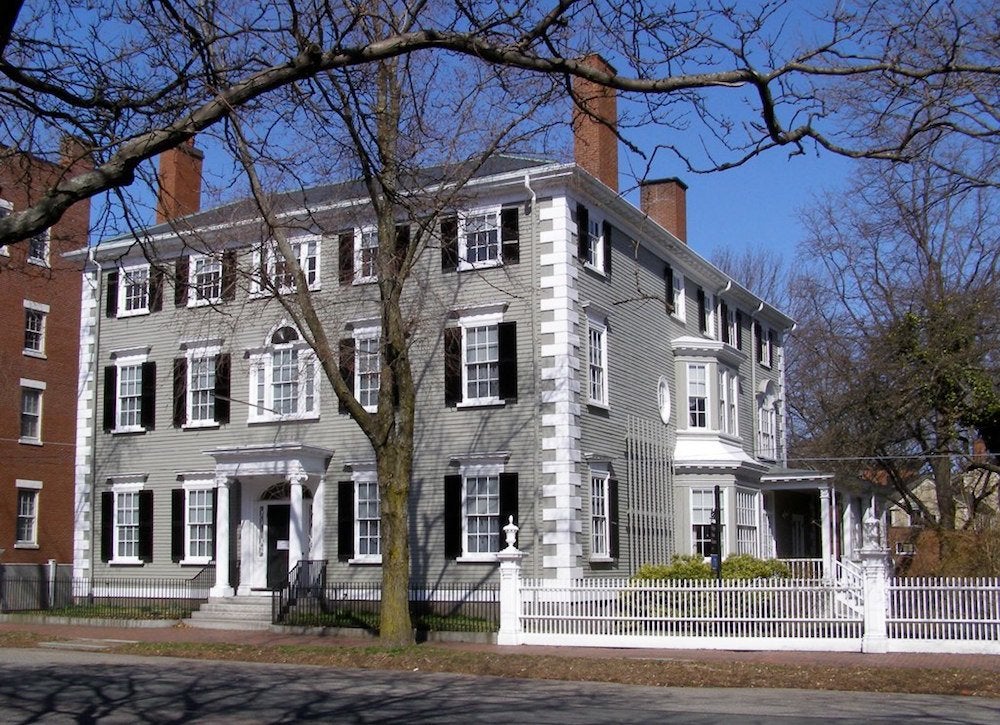
flickr.com via Melinda Stuart
Nestled in historic New England is a stately mansion-turned-museum once occupied by Stephen W. Phillips, a millionaire and prominent member of Salem’s elite. Dubbed the Stephen Phillips House, the 1799 mansion boasts a well-preserved kitchen, pantry, and bedrooms adorned with Hawaiian and Polynesian souvenirs, Persian carpets, and imported porcelain, all hidden behind an elegant Georgian facade.
Related: Step Inside 12 Hotels That Take You Back in Time
Meek Mansion, Cherryland, CA (1869)
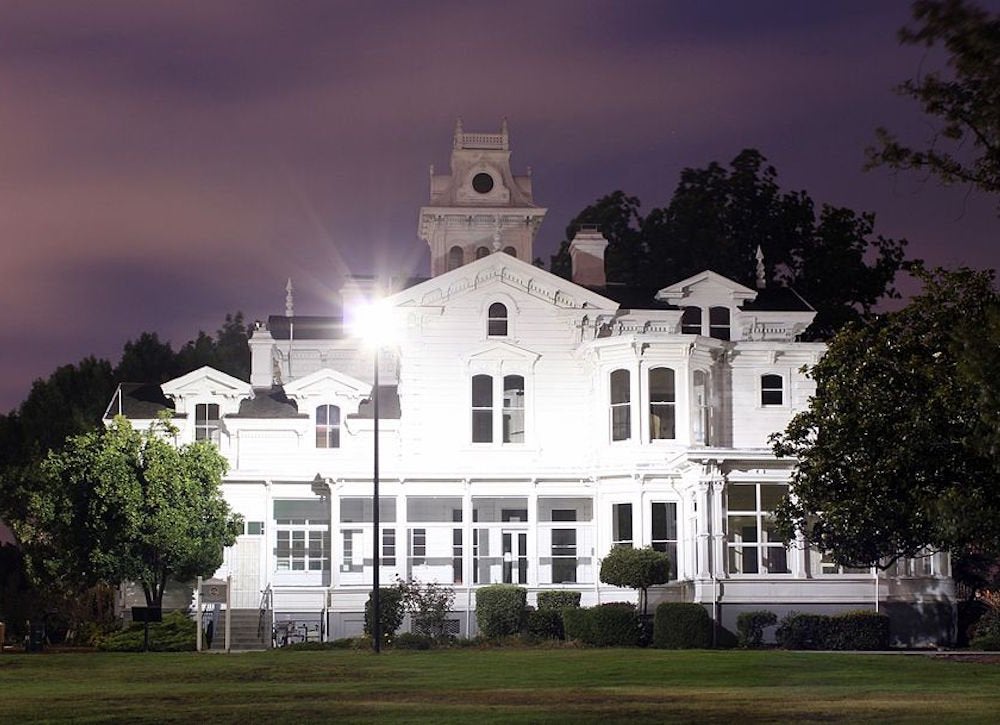
Despite its moniker as “Meek Mansion,” this historic Victorian home in California is an imposing structure to behold, containing between 23 and 27 rooms between the residence and carriage house. The former resident of the palatial abode, one William Meek, was no shy violet himself. Meek built the home in 1869, and later acquired 3,000 acres of nearby land and planted it with enough cherry trees to earn the community’s name of Cherryland.
Related: 16 Weirdly Awesome Summer Vacation Rentals on Airbnb
George Barton House, Buffalo, NY (1904)
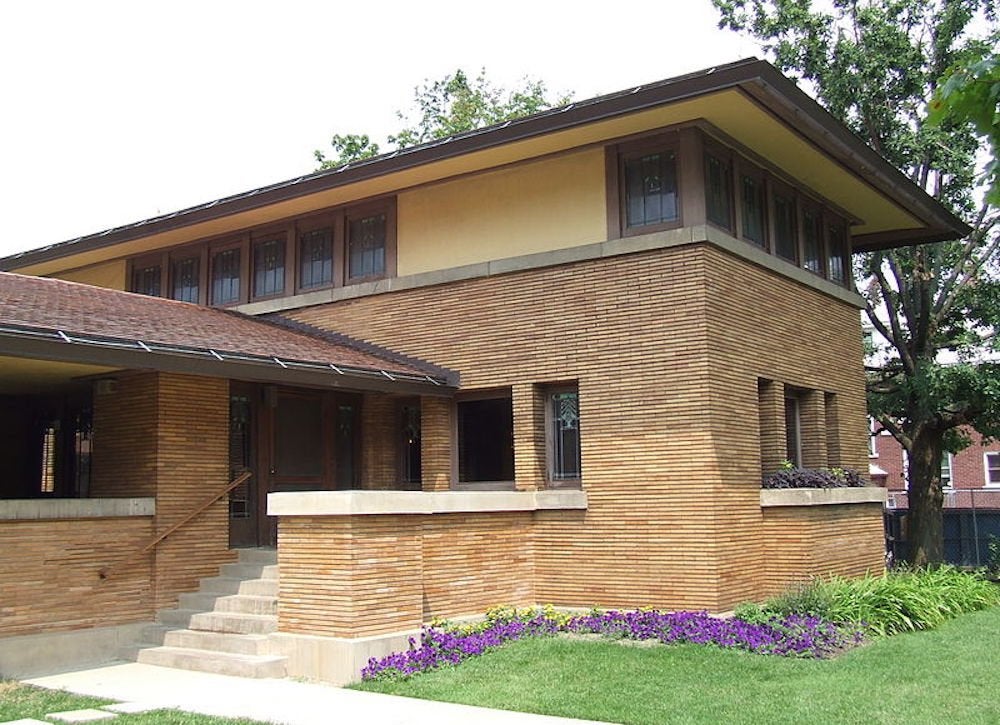
Architect Frank Lloyd Wright is responsible for this historic home’s quintessentially organic architectural style. The George Barton house, built circa 1904, exemplifies Wright’s Prairie School design with overhanging eaves, striking bands of horizontal windows, and an elegant integration with the surrounding landscape that connects residents to the great outdoors from the comfort of their living room.
Related: 10 Cliffhanging Houses to Fall For
Ashland, Lexington, KY (1811)
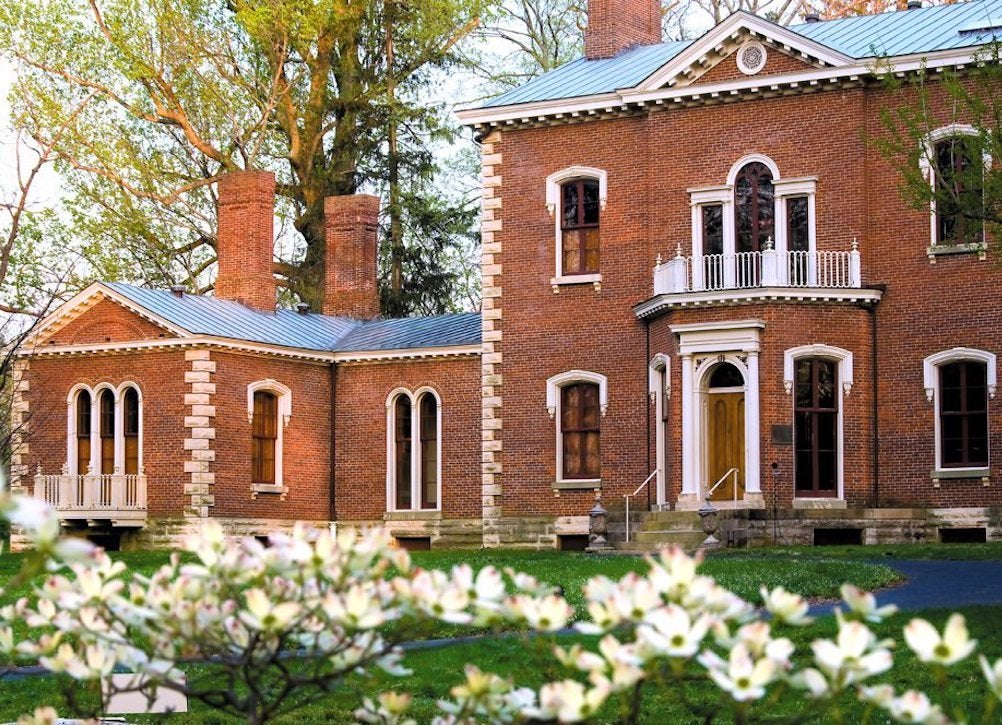
Famed statesman and planter Henry Clay was lucky enough to call this timeless Kentucky treasure his family home. Today the Federal-style mansion, built in 1811 and boasting 18 grand rooms, is a National Historic Landmark.
Harley Clarke Mansion, Evanston, IL (1927)
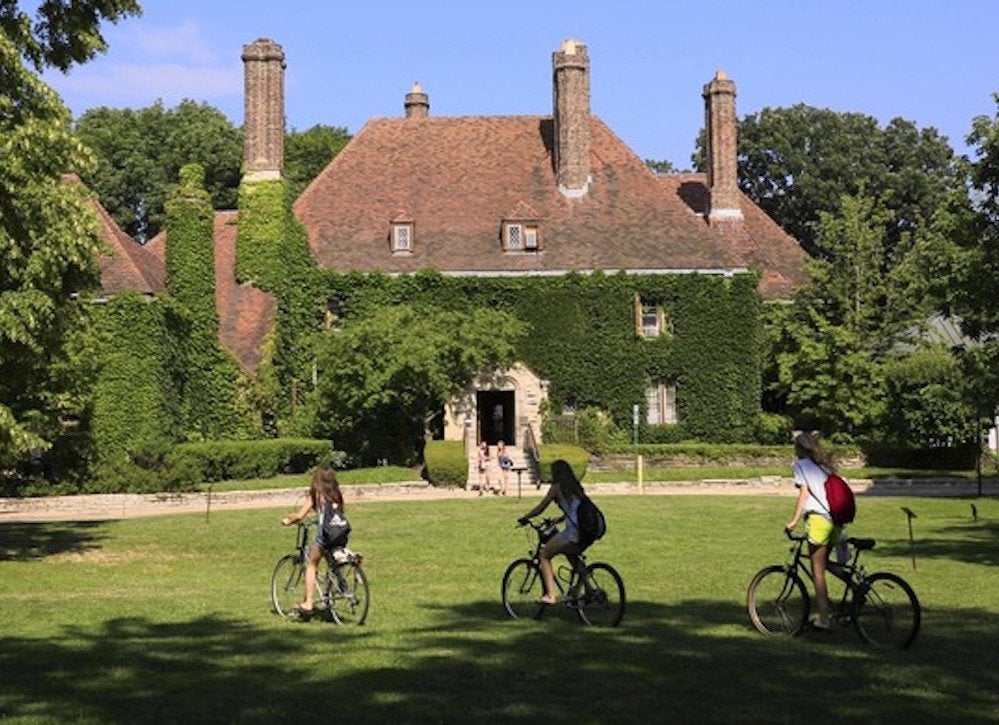
While Harley Clarke Mansion has at various times in its history served as a private residence, a fraternity headquarters, and a venue for local arts, it has never lost its original elegance or intrigue. The ninety-year-old French-Eclectic lakefront property, formerly the home of a local executive Harley Clarke, has had such an enchanting effect on Evanstonians that the city recently decided to open its historic doors to the public again.
Related: What 11 Ordinary People Paid to Live in Your Favorite Movie Homes
Bedford House / John Jay House, Katonah, New York (late 1700s)
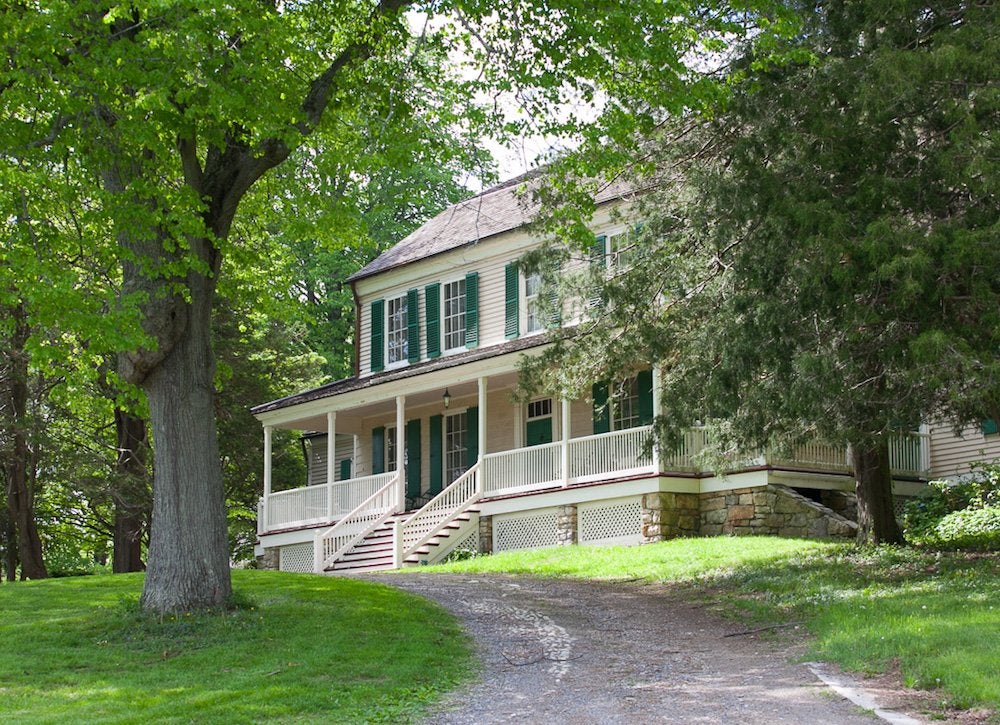
First Chief Justice of the United States, John Jay, judged this New York nest to be fit for his family home while he still reigned on the high court, but he was only able to move in following his retirement. The restored interior of the Bedford House, originally built in Katonah in the late 1700s, features over half of Jay’s original family furnishings, while the adjacent carriage barn and lush gardens put the family’s love of the outdoors on display for modern tourists.

Save Energy While Staying Cozy
Today’s energy-efficient space heaters warm individual rooms, so users needn’t heat unoccupied areas of the house. We tested the most popular space heaters on the market to find out which ones performed the best.
